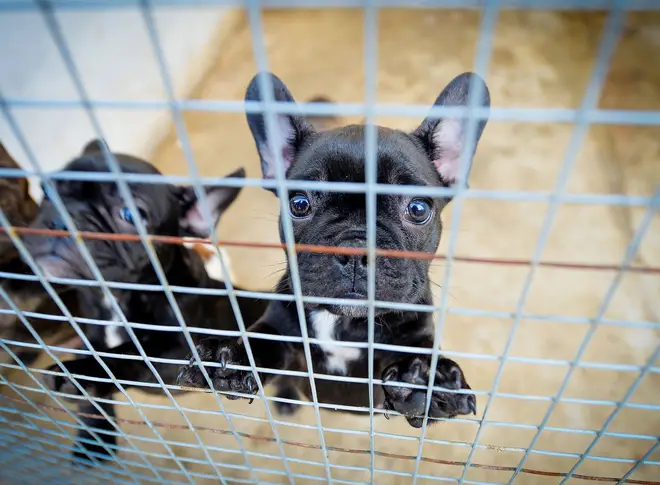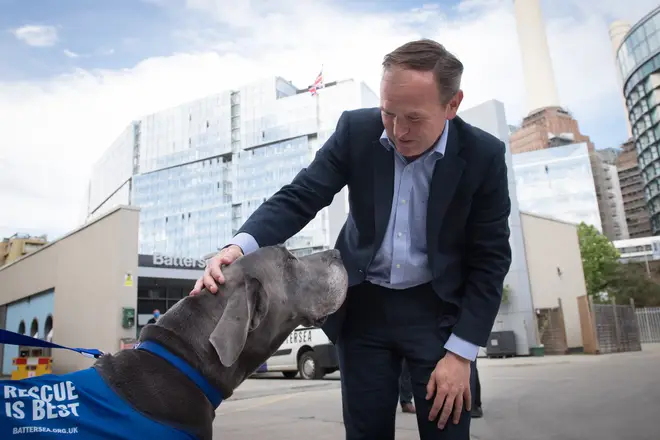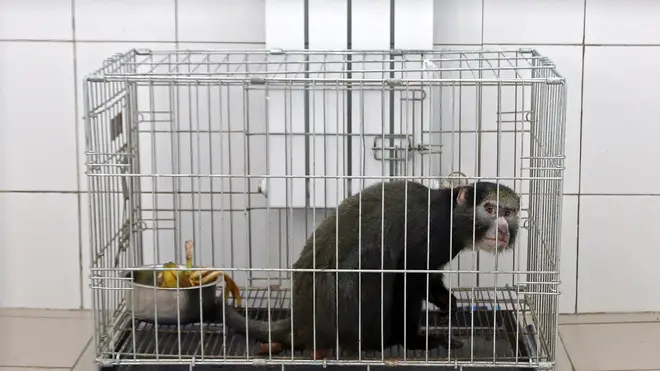
Richard Spurr 1am - 4am
12 May 2021, 07:18

Animals would be recognised as sentient beings under a landmark new law aiming to help domesticated and wild creatures in the UK and abroad.
The Animal Sentience Bill will be introduced to Parliament on Thursday, which officials said would put animal welfare at the heart of Government policy decision making, and further legislation will follow.
As part of the push to protect animals, the bill will look at rules to tackle puppy smuggling, make keeping primates as pets illegal and ban imports of hunting trophies
The action plan for animal welfare includes stopping ads in the UK for things such as elephant rides abroad and exploring a ban on foie gras.
The plan is a mixture of new measures, confirmation of manifesto commitments and moves that have been consulted on and will now be introduced, or ones that have been previously attempted.

Announcing the plan at a trip to Battersea Dogs and Cats Home in London, Environment Secretary George Eustice said the UK was a nation of animal lovers, and the new measures would build on existing high standards.
Animal welfare campaigners welcomed the moves in the action plan, and urged the Government to make it "just the beginning" of an evolving, holistic animal health and welfare strategy.
The action plan includes measures to improve welfare for pets by tackling puppy smuggling through changes to import rules, introducing compulsory microchipping for cats, cracking down on pet theft through a new government taskforce and a new attempt to ban remote controlled training e-collars.
It aims to protect wild animals by making it illegal to keep primates as pets, introducing new laws to crack down on illegal hare coursing, supporting legislation to restrict the use of glue traps, and funding wildlife conservation projects at home and abroad.
Measures to protect animals abroad include banning the import of hunting trophies from endangered animals, and the sale of ivory by implementing the Ivory Act this year, and prohibiting the import and export of detached shark fins to protect sharks.

Officials also said the Government would explore a ban on the sale of foie gras, and would work with the devolved administrations to ban advertisements across the UK for "unacceptable" low-welfare animal practices abroad, such as elephant rides.
And there are measures aimed at improving welfare for farm animals, including ending the export of live animals for fattening and slaughter and introducing new measures to improve welfare during transport.
There are also plans to give the police more powers to protect farm animals from dangerous or out of control dogs, examining the use of cages for poultry and farrowing crates for pigs and improving animal welfare at slaughter.
The action plan confirms moves to incentivise farmers to improve animal health and welfare as part of the farming policy being drawn up now the UK is no longer part of the EU.
Launching the plan, Environment Secretary George Eustice said: "We are a nation of animal lovers and were the first country in the world to pass animal welfare laws.
"Our action plan for animal welfare will deliver on our manifesto commitment to ban the export of live animal exports for slaughter and fattening, prohibit keeping primates as pets and bring in new laws to tackle puppy smuggling.
"We will lead on the protection of animals abroad by implementing the world's toughest ivory ban and banning the import of hunting trophies to protect iconic species."
Chris Sherwood, chief executive of the RSPCA, said: "These announcements will make a real and lasting difference to animals' welfare, so we're pleased the Government is committed to improving animals' lives in the UK and abroad.
"We can no longer ignore the inextricable link that exists between the way we treat animals, our own health and that of the planet - but to really achieve a step change, it will take courage from right across Government.
"We urge the Government to put animal welfare at the heart of policy making and make these announcements just the beginning of an evolving, holistic animal health and welfare strategy."